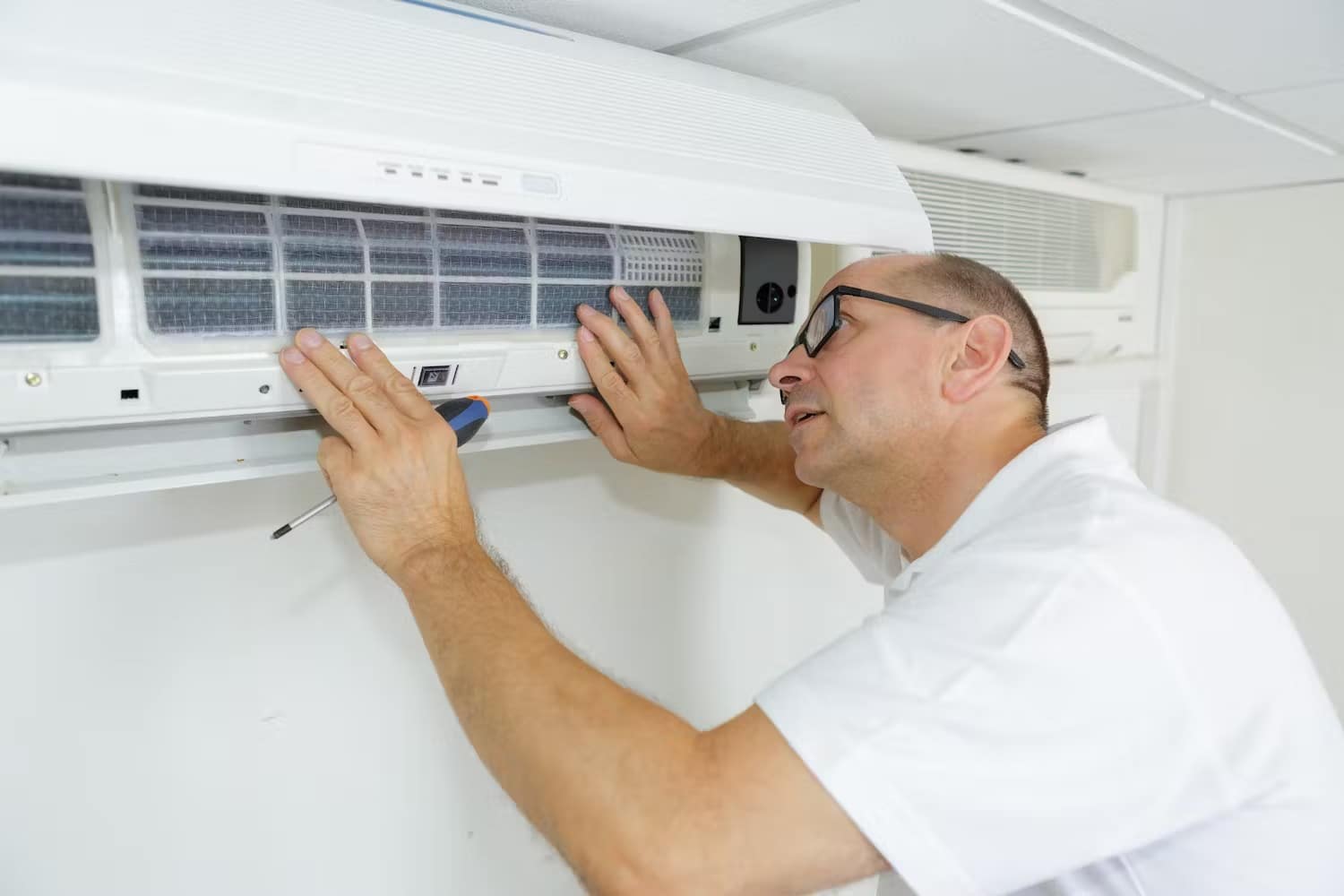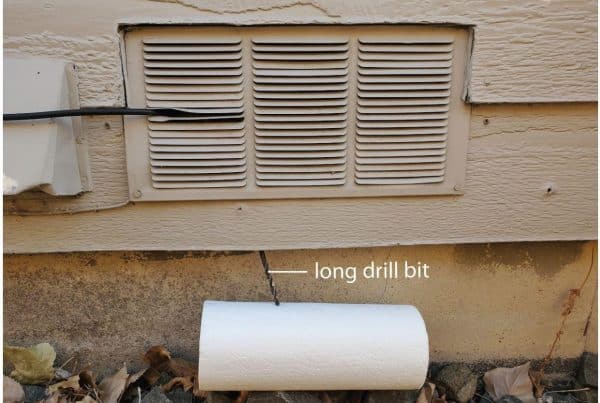When the weather gets hot, turning on the air conditioning is usually the first thing we do to cool off.
However, if you notice water coming from your AC unit and pooling on the floor, it can indicate a problem with your system. There are many reasons why your AC might be spitting out water, and it’s important to address it as soon as possible to prevent further damage to your system or your home.
Is your AC spitting water? The fastest way to resolve the issue is to contact an HVAC professional like Anderson Air. However, for those who want to understand the reason why your AC might be malfunctioning or attempt to fix it themselves, here’s what you need to know.
The science of air conditioning
Before we dive into the reasons why your AC is spitting water, it’s helpful to understand the basic principles of how air conditioning works. Air conditioners remove the heat and moisture from the air in your living space and replace it with cooler, drier air.
The moisture that is removed from the air during this process is typically directed to a drain or collection pan, where it can be safely disposed of.
Why is my AC spitting out water?
Have you noticed your AC spitting water? It can be unnerving but no need to worry, now that we know how air conditioning works let’s explore some of the reasons why your AC unit is leaking water.
1. Clogged or dirty air filters
If your AC filters are clogged or dirty, your system may not be able to remove moisture from the air effectively. This can lead to a buildup of moisture that can overflow the system’s drain pan and leak onto your floor. To prevent this problem, make sure you are replacing and cleaning your air filters regularly.
2. Corroded or damaged drain pan
The drain pan is responsible for collecting and removing the moisture that’s removed from the air by your AC system. Over time, these pans can become damaged, leading to leaks. Inspect your drain pan regularly, and replace it if you notice any signs of corrosion, damage or deterioration.
3. Blocked or clogged drain line
Your AC drain line carries the condensed moisture from your system away to your sewer or dedicated drain line. However, these lines can sometimes become clogged with dirt or other debris, leading to an overflow of moisture and a water leak.
If you suspect a clogged drain line, shut your HVAC system off and call a professional HVAC technician to clear the line and flush the system.
4. Frozen evaporator coil
The evaporator coil in your AC system works to remove moisture from the air. However, if it gets too cold, it can freeze over, leading to leaks and even system damage. If you notice ice forming on your AC unit or an overflow of water, turn off your system, and contact an HVAC technician immediately.
5. Low refrigerant levels
Your AC system requires a specific level of refrigerant to operate correctly. Low refrigerant levels can cause your AC system’s evaporator coil to become too cold, leading to water leaks. If you suspect that your refrigerant levels are low, contact a professional HVAC technician to top off your system and identify any leaks that need repair.
6. Improperly installed or sloped unit
An improperly installed or sloped air conditioning system can cause water to leak from your unit. An HVAC technician can identify this issue and make any necessary adjustments to the installation or slopes.
7. Damaged or faulty condensate pump
Your AC unit’s condensate pump is responsible for removing the moisture from the air and directing it to the drain. However, if the pump is damaged or worn out, it may not be able to perform its function correctly, leading to water leaks.
An HVAC technician can inspect your condensate pump and, if necessary, replace it to prevent water damage to your home.
The importance of addressing leaks promptly
If you notice water leaking from your AC unit, it’s essential to address the issue promptly to prevent further damage to your system or your property. Water damage can cause a lot of damage to your walls, ceilings, and floors. It can even lead to mold and mildew growth, creating health hazards for you and your family.
Additionally, prolonged leaks within your AC unit can lead to corrosion and damage, requiring costly repairs or replacements down the line.
AC spitting water? Here’s what to do if you find a leak
If you notice water leaking from your AC unit, turn off your system and contact an HVAC technician immediately. While you’re waiting for the technician to arrive, consider taking the following steps:
- Remove any standing water with a shop vac or towels to prevent further damage to your home
- Shut down the power to the system from the circuit breaker to prevent any electrical hazards
- Change any clogged air filters, which may be contributing to the leak
- Inspect the drain pan and drain line for clogs or blockages and clear any debris if necessary
Here’s how to stop a window AC from spitting water:
- Ensure the air filter is clean, as dust, dirt and other particles can impede the proper drainage of moisture.
- Check for any blockages in the drain tube or pipe which can be the cause of water splashing out.
- If the blockage cannot be removed manually then wait for the technician to perform any required repairs.
Prevention is key
The best way to prevent water leaks from your AC unit is to ensure that it’s in good working condition and maintained regularly. Change your filters regularly, and schedule professional maintenance at least once per year.
Conclusion – Is your AC spitting water? Contact a professional.
If you’ve gone through this list and your AC is spitting out water or you need help fixing it, don’t hesitate to contact a professional HVAC technician. They will be able to accurately diagnose the issue and fix it for you quickly.








